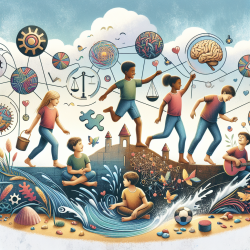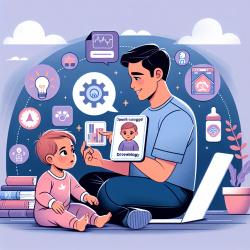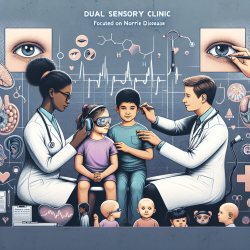The journey of understanding children's cognitive and emotional development is a complex one, filled with twists and turns that can sometimes be challenging to navigate. However, recent research has shed light on a fascinating aspect of child psychology: the error-related negativity (ERN) as a neuromarker of risk or resilience in young children. This discovery holds the potential to revolutionize how practitioners approach childhood development and mental health interventions.
Understanding Error-Related Negativity (ERN)
Error-related negativity is a neural response that occurs when an individual makes a mistake. It reflects the brain's error-monitoring processes. In young children, ERN has been identified as both a risk factor and a protective factor, presenting an intriguing paradox that researchers are eager to unravel.
The study titled "The error-related negativity as a neuromarker of risk or resilience in young children" explores the associations between ERN measured in early childhood and the development of cognitive control (CC), emotion regulation, and internalizing/externalizing symptoms over 1–2 years. The findings suggest that high-amplitude ERN predicts better self-control, including executive function and cognitive control, and less affect dysregulation in middle childhood.
The Implications for Practitioners
For practitioners working with young children, these findings offer valuable insights into identifying and supporting children at risk for psychopathology. Here's how you can implement these insights into your practice:
- Early Identification: Use ERN as an early indicator to identify children who may benefit from targeted interventions aimed at enhancing cognitive control and emotion regulation.
- Tailored Interventions: Develop intervention strategies that focus on strengthening executive function and reducing affect dysregulation in children with high-amplitude ERN.
- Mediation Strategies: Consider emotion dysregulation as a mediator between ERN and anxiety/externalizing problems. Tailor interventions to address these specific pathways.
- Cognitive Control Focus: Recognize cognitive control as a mediator in the relationship between ERN and externalizing problems. Implement programs that enhance cognitive control skills.
The Path Forward: Encouraging Further Research
The study's findings are promising but also highlight the need for further research to fully understand the complexities of ERN as a neuromarker. Practitioners are encouraged to stay informed about ongoing research developments in this area. Engaging with new studies will not only enhance your practice but also contribute to the broader field of child psychology.
The error-related negativity as a neuromarker of risk or resilience in young children
This research offers a glimpse into the potential of using neuromarkers like ERN to better understand and support children's developmental trajectories. By integrating these insights into practice, you can play a pivotal role in fostering resilience and positive outcomes for young children.










